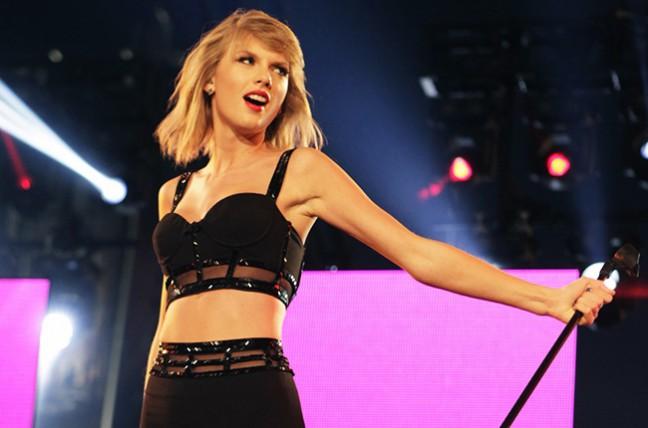It took me a long time to realize exactly why I hate Taylor Swift so much. Yes, her sappy ballads make me want to regurgitate her shallow ideas of love and identity right back at her and her myriad boyfriends. Yes, her blasé performance style leaves much to be desired. But why has my subtle disliking morphed into rapt abhorrence? Why can I no longer sit idle while Taylor Swift effectively takes over the music world? Because no one should stay silent while America’s sweetheart forever changes the music industry for the worse in an attempt to make money for herself and to protect her cherished brand.
With earnings reaching $64 million in 2014, according to Forbes, Swift has quickly climbed the ranks of wealthy artists since she started producing music in 2006. No heiress to massive fortunes, I can’t deny Swift has earned her wealth and place as queen of the pop billboard charts. However, along the way, Swift lost sight of the music and her personality — only to focus on maintaining steady revenue.
In the last two years, she officially cut ties with her country beginnings, transitioning to the cash cow of pop music. She became the tourism ambassador of New York City after living there for a few months. She removed her songs from Spotify. She refused to show her bellybutton to the press and while performing. But amid all this change, she committed her most egregious act in the pursuit of cash.
Last week, about three months after the release of her chart-topping album 1989, Swift became the first artist to preemptively trademark phrases from her lyrics she has deemed as catchphrases. Now if you are planning on using the lines, “party like its 1989”, “this sick beat”, “’cause we never go out of style,” “could show you incredible things” and “nice to meet you, where you been?” on pretty much any product, you have to ask her permission first.
According to legal database Justia (via Rolling Stone), her legal claim explicitly prohibits products like wind chimes, decals, removable tattoo transfers, hosiery, shoelaces and Christmas tree accessories from including her highly original and distinct phrases. Sorry, kids, but if you were planning on selling “non-medicated preparations for the skin, scalp, body or hair” with “this sick beat” on it, think again. Trademark serial-numbered 86434770 clearly outlines the illegal nature of that act.
While it is extremely common to copyright lyrics to original songs, trademarking phrases takes the process to a whole new level. A copyright mainly gives the creator exclusive right to reproduce work like musical material and literary work. A trademark, on the other hand, is usually a symbol, word or words representing a company or product. By trademarking her phrases within her lyrics, she not only stands to gain revenue from people using her words, but she is in a prime position to start selling products based on the themes in her lyrics, according to the Guardian.
The Guardian also speculates she is merely trying to stop third parties from exploiting her creativity and making money off of her work without permission, and she is not just trying to turn everything into a moneymaking opportunity. But what makes this argument so hard to believe is this legal action is no isolated event. It comes toward the end of a long laundry list of PR stunts, new career directions and business ventures transforming her from a singer to a mogul, greedily expanding her empire bit by bit at the cost of her integrity.
Taylor Swift is by no means the first artist to have sold their musical souls to cable television appearances and a strong personal brand. But Taylor Swift has transformed into an amorphous business monster so rapidly that she has lost all sense of authenticity.
It was just nine years ago that a bright-eyed Swift released her debut, self-titled country album and sang about finding love at first sight. Now, when she is not a judge on The Voice or stopping someone from sewing “this sick beat” into a throw pillow, she is exposing her belly button with the Haim sisters and singing about using men in defiant pop songs. Usually, development is good for artists. No one wants to hear the same album over and over, but she has changed so much she has effectively left her old persona behind.
Some artists can successfully flirt with the line of selling out while keeping their respect as artists. Jay Z has built a manifold business empire. As the co-founder of Rocawear and Roc-a-Fella records, former president of Def Jam Records, a producer and founder of Roc Nation, Roc Nation Sports and several more, Jay Z’s net worth was $520 million in 2014. But the difference between Jay Z’s business-savvy and Taylor Swift’s degradation-into-soulless moneymaking is Jay Z’s long and illustrious career as an artist who has not been curtailed by his business ventures.
Because Taylor Swift’s brand and musical style has changed so much since her humble beginnings as a country singer, it almost seems like she could morph into whatever shape would make her the most money. Don’t be surprised when her next album is produced by Jay Z and is only available for download on iTunes for a modest $30 a pop.


